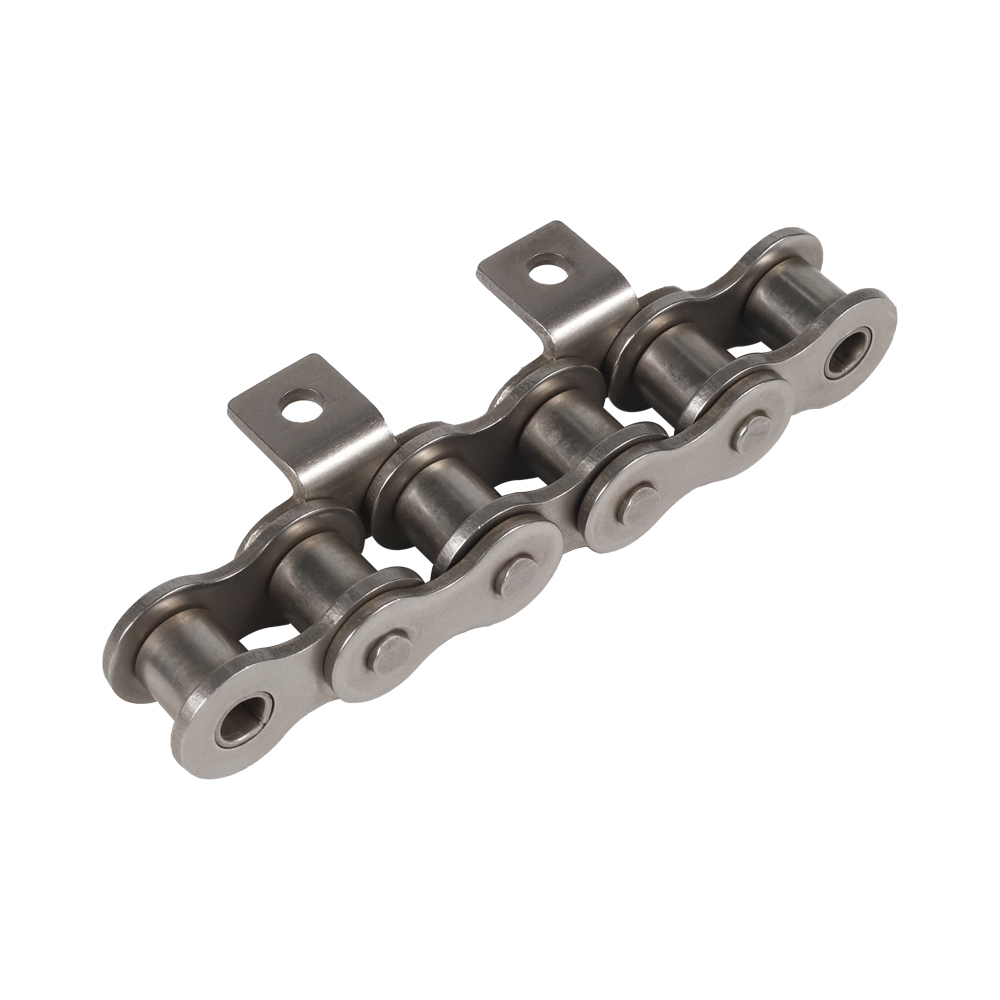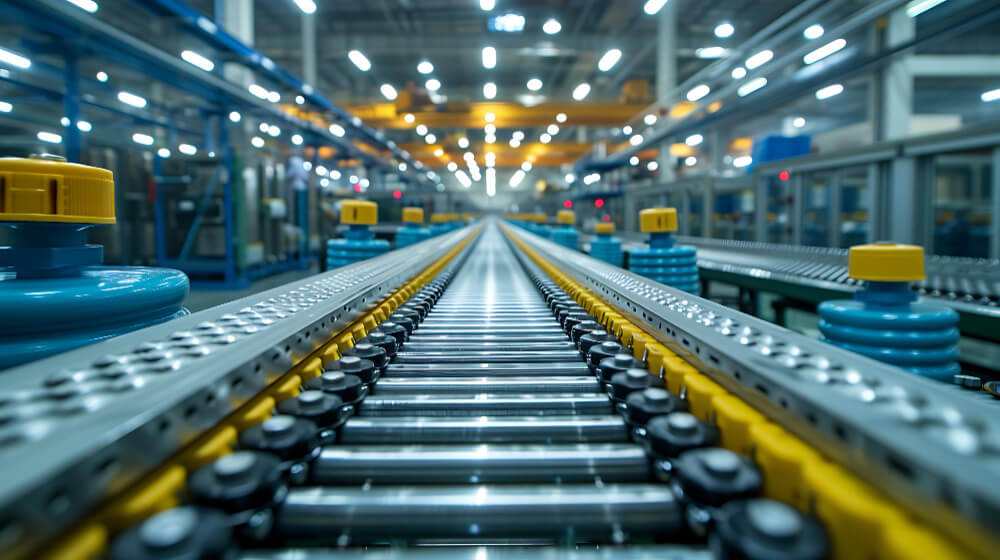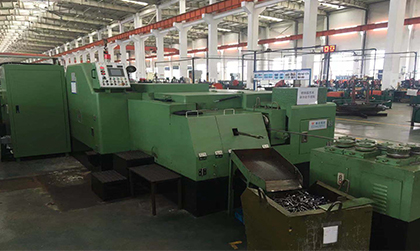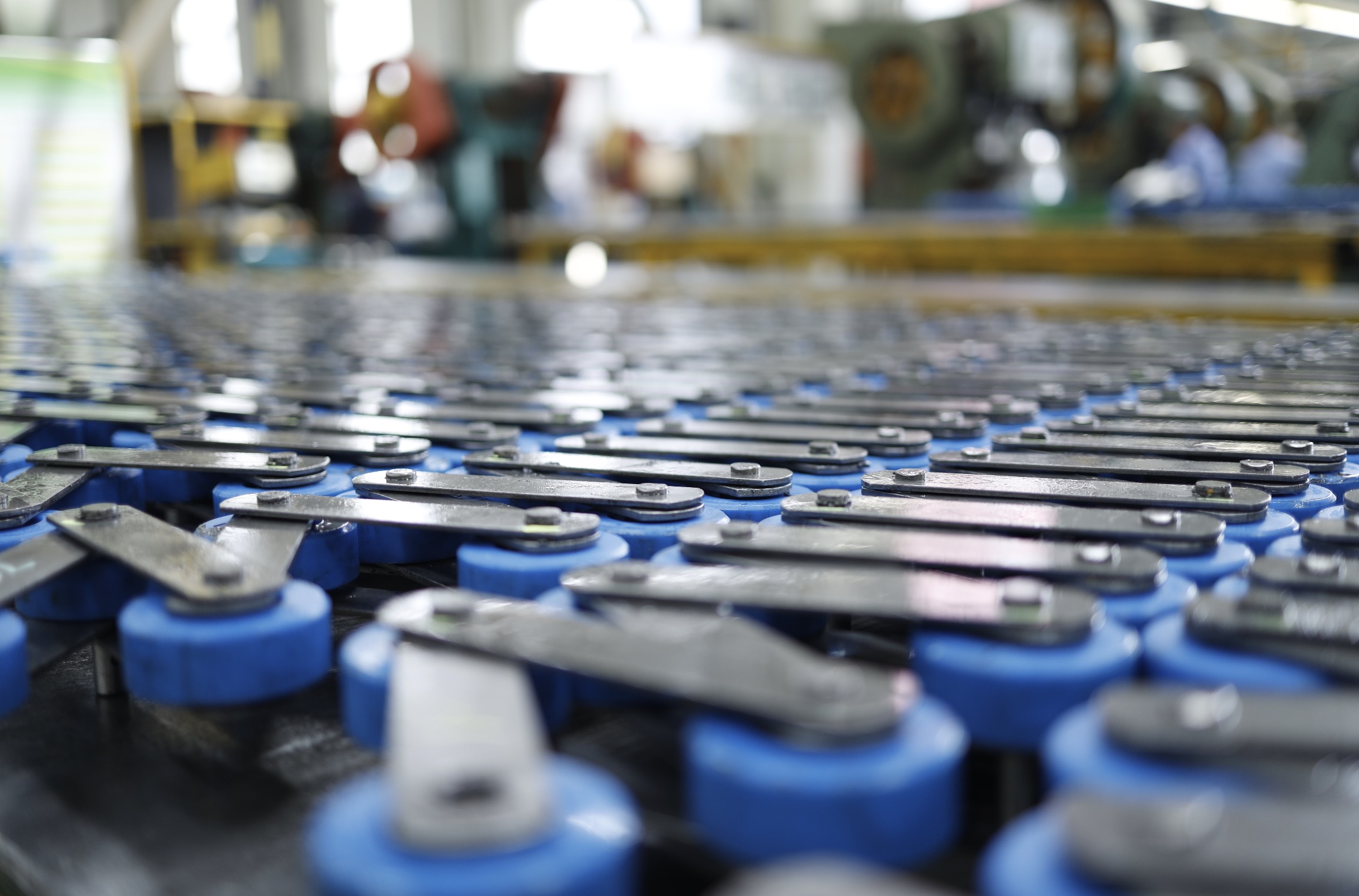The strongest chain is Grade 120, made from high-strength alloy steel. Grade 120 offers a 50% higher working load limit compared to Grade 80 and 20% higher than Grade 100.
This grade is identifiable by its bright blue finish, indicating its suitability for the most demanding overhead lifting applications.
Alloy steel chains, including Grades 80, 100, and 120, are designed specifically for high-strength, durable performance in lifting tasks.

Chain Grade Types and Common Applications
Chain grades are essential for determining the strength and appropriate applications of different types of chains.
Here are the common grades of chains used in various industries, along with their characteristics:
| Chain Grade | Material | Applications | Strength |
| Grade 30 | Low carbon steel | General-purpose use, cargo lashing, tie-downs | Lowest tensile strength; not suitable for overhead lifting. |
| Grade 40 | Higher carbon content than Grade 30 | Boat windlasses, mines, oil drilling fields | Higher than Grade 30 but still not approved for overhead lifting. |
| Grade 43 | Higher carbon steel | Load binding, towing, logging | Similar to Grade 40 but with larger chain links; not suitable for overhead lifting. |
| Grade 70 | Heat-treated carbon steel | Transport chain for securing loads | Approximately 20% stronger than Grade 43; not recommended for overhead lifting. |
| Grade 80 | Alloy steel, hardened and tempered | Industrial lifting applications | Economical choice for lifting; suitable for overhead lifting; high resistance to impact. |
| Grade 100 | Alloy steel, hardened and tempered | Chain slings, overhead lifting | 25% higher lifting capacity than Grade 80. |
| Grade 120 | Ultra-premium high-strength alloy steel | Extreme overhead lifting applications | 50% increase in working load limit compared to Grade 80. |
Chain Materials and Their Corresponding Grades
Industrial chains are essential components in various industries, providing reliable performance in lifting, towing, and securing loads.
Understanding the different materials and grades of chains is crucial for selecting the right chain for specific applications.
Here, we explore the common chain materials and their corresponding grades.
Carbon Steel Chains
Low-carbon Steel
Grade 30 (G30) is made from low-carbon steel, offering the lowest tensile strength among all chain grades.
This grade is used for general-purpose applications such as cargo lashing, tie-downs, and residential uses.
Due to its lower strength, Grade 30 chains are not suitable for overhead lifting and are commonly used in non-critical applications where high strength is not essential.
High-carbon Steel
Grade 43 (G43), also known as High-Test chains, is made from higher carbon steel and provides greater strength than Grade 30.
These chains are used for load binding, towing, logging, and other applications requiring higher strength.
However, they are not approved for overhead lifting. Grade 43 chains are ideal for heavy-duty binding and securing tasks where overhead lifting is not required.
Heat-treated Carbon Steel
Grade 70 (G70) is made from heat-treated carbon steel, making it approximately 20% stronger than Grade 43.
These chains are easily recognizable by their gold chromate finish and are used for load binding, towing, logging, and securing loads for on-road transport.
While Grade 70 chains are perfect for transportation and load securing, they are not recommended for overhead lifting.
Alloy Steel Chains
Heat-Treated Alloy
Grade 80 (G80) chains are made from heat-treated alloy steel and are designed for overhead lifting applications.
They provide a cost-effective option compared to higher grades and are recommended for industrial lifting and hoisting operations.
Grade 80 chains are suitable for most lifting tasks that require high strength and durability.
Premium Alloy
Grade 100 (G100) chains are made from ultra-premium high-strength alloy steel, offering a 25% higher lifting capacity than Grade 80.
These chains are designed for demanding lifting applications and are ideal for chain slings and overhead lifting operations.
Grade 100 chains are used in heavy lifting and rigging applications, providing enhanced lifting capacity and safety.
High-strength Alloy
Grade 120 (G120) chains are the strongest chain grade available, made from high-strength alloy steel.
They offer a 50% higher working load limit compared to Grade 80 and a 20% higher limit than Grade 100.
Grade 120 chains are easily identifiable by their bright blue finish and are suitable for the most rigorous and demanding overhead lifting applications.
These chains are used in environments that require maximum strength and durability, such as construction and heavy industry.
Stainless Steel Chains
Stainless steel chains are known for their excellent resistance to corrosion and oxidation.
While they are typically not graded in the same manner as carbon or alloy steel chains, they are valued for their durability in harsh environments.
Stainless steel chains are used in marine environments, food processing, pharmaceuticals, and other applications where corrosion resistance is critical.
These chains are ideal for applications requiring longevity and resistance to rust, even though they may not offer the same tensile strength as high-grade alloy chains.
How to Identify Chain Grade
Identifying chain grades is essential for ensuring the safety and effectiveness of lifting and securing applications.
Different chain grades have distinct characteristics that help in their identification.
Grade Markings
Chains are typically marked with their grade number, which is stamped or embossed on the links. Common grades include 30, 43, 70, 80, 100, and 120.
For example, Grade 80 chains may be marked with a “T” indicating they are suitable for lifting, while Grade 100 chains may have a “V” marking.
Material Composition
Carbon Steel Chains: Grades 30, 43, and 70 are made from carbon steel and are generally used for general purposes, such as cargo tie-downs and towing. They are not approved for overhead lifting.
Alloy Steel Chains: Grades 80, 100, and 120 are made from alloy steel and are designed for overhead lifting applications. They are stronger and more durable than carbon steel chains.
Tensile Strength
The tensile strength increases with the grade. For example, Grade 30 has the lowest tensile strength, while Grade 120 has the highest.
The grade number often correlates with the maximum tensile force in Newtons per square millimeter of the chain link cross-section.
Working Load Limit (WLL)
Each grade has a specific working load limit that indicates the maximum load it can safely handle.
For instance, Grade 30 chains have a WLL ranging from 1,300 to 6,900 lbs, while Grade 100 chains can handle significantly more due to their higher strength.
Finish and Coating
Chains may also have distinctive finishes that help identify their grade.
For example, Grade 70 chains often have a yellow chromate finish, while Grade 100 chains may have a bright blue finish.
These coatings provide corrosion resistance and can indicate the chain’s intended use.
By understanding these characteristics, you can accurately identify the chain grade and ensure the appropriate use for specific lifting or securing tasks.



